This article was first published in The eXile on April 27, 2000.
The nonviolent teach-in at a church in Colombia Heights just begged to be sneered at. You couldn’t help it. Here in the church basement, hundreds of protest-eager students ranging from Phish groupies to Tower Records clerks were being prepped for slaughter by a pair of butch mentors and their lanky male sidekicks, all elders of the great Seattle riots. Since there were several such teach-ins across Washington D.C. for days leading up to the anti-IMF protests, you could assume that thousands were being trained for non-violent action, facing down not only America’s entire security forces apparatus (FBI, Secret Service, U.S. Park Rangers, D.C. Metropolitan Police, and the National Guard to name a few), but also the enmity of the mainstream press, as well as Washington’s vile, physically-repulsive professional class. The poor Vegan hippies were going to get stomped on by the greatest state police apparatus that the world has ever known, and they had no idea.
I’d just arrived from Russia, ground zero of the IMF and World Bank’s assault on the developing world. Taibbi and I had started our book tour in New York at the end of March. Once we heard about a widely-advertised orgy of destruction in D.C. as well as the janitor’s strike in Los Angeles, we put everything on hold and split apart in Madison, Wisconsin. He drove the X-Car to LA, and I hopped on a plane to DC.
The anti-IMF demonstrations struck me as strange on a literal level: why would thousands of nice middle-class American hippies risk cornea damage and a night in jail over something that never directly affected their lives, while Ghanaians, Russians, Peruvians and other victims of the IMF remained conspicuously absent? Few Russians bother demonstrating against the IMF, which so brazenly and unabashedly destroyed millions of lives. True, there have been countless demonstrations against the effects of austerity cuts: teachers, miners, doctors and pensioners have gone so far as to lie down on railway tracks or barricade themselves in factories or hold mass hunger strikes in grammar schools just to receive a year’s back pay. But the focus of their anger was always their own government, not the IMF that had imposed the conditions upon their government.
It was hard to imagine how this collection of human bongwater could be rallied into action against a murky pair of powerful international financial institutions. But their strength in numbers and willingness to face down the police was impressive, regardless if they understood the bigger picture. Sneering at them just for being middle-class Phish trolls was, I knew, the coward’s way out. As Nietzsche once wrote, skepticism at some point becomes soporific, an excuse for one’s caution and inaction when confronted with the impressive courage of others who act. On top of it, these protesters were absolutely right. The IMF and World Bank totally suck.
Unlike the dozens of lame demonstrations and protests that I attended as a violence-voyeur over the years in Berkeley and San Francisco, Washington D.C. promised to be different. The thousands of non-violent Phish trolls would provide cover for the feared shock troops, those bandanna-masked vandals and black-clad anarchists, who, like a school of barracudas, would suddenly rocket through a seemingly harmless cloud of tropical fish and tear the city to pieces. The police reaction would be swift and brutal, bloodied strips of pierced facial flesh whipping off the end of truncheons and flicking on to TV camera lenses. Such images would cast acloud over the World Bank, and further energize the nascent protest movement; perhaps they might even inspire Russia’s youth to demand justice from the IMF, too: such as, at the very least, a cancellation of the debts– a fair request since the IMF all but admitted that they knew they were handing money to corrupt thugs all along in return for geopolitical favors rendered to the West.
After learning some basic civil disobedience rules, such as “Don’t trust the cops, the cops always lie” and how to feign pain when being dragged away, we broke off into groups of four to learn why going limp during an arrest makes it harder for a cop to carry you. A short, gaunt hippie invited me to join a dumpy vegetarian and an Indian girl so wispy-thin that Gandhi could have snapped her in half with one feeble blow of his stick. For the demonstration, one would sit cross-legged, while the other three would carry him away to an imaginary police bus; then, the process would be repeated, only this time the arrestee would let his body go limp, theoretically making it more difficult for the three acting “cops” to carry him away.
The hippie, light as a five foot stick of tofu, volunteered first: because he sat stiffly, we picked him up with too much ease and nearly heaved him into the cement wall… SPLAT!… pancaked Phish-meat sliding down the wall like a cartoon manhole cover, with bushy beard fuzz lining the edges like cilia, as the manhole cover bounces to the ground edge-wise, then rolls out the door… When he lay limp on the second try, I had a quick flash of cop wisdom: it wasn’t that much more difficult to lift him, but it was annoying that he thought he’d made my life difficult. My inner cop wanted to boot the hippie in the ribs. Nothing gets a sack of bearded bongwater on its ass faster than a partially-collapsed lung and two bruised ribs.
Ah, but I catch my traitor’s heart sneering at one braver than me. These kids were all courageous. It didn’t matter that they were nearly all white middle-class students with hardly a clue about IMF and World Bank evil except for what they’d been told. The point was that they didn’t want to be forced into that terrifying world of cubicle-feudalism, where every baron has the fat-chinned, bloated swagger of Treasury Secretary and neo-liberal fuhrer Larry Summers. The thousands who gathered in Washington weren’t protesting so much the devastation in Russia or Ghana or Argentina, although on the surface they meant to. Rather, they were protesting the spiritual devastation that awaited them, a doomed battle against the cubicle plantations that were bound to swallow them up whole.
* * *
Every time you come from Russia to America, you feel as if the world has stopped rotating. The feedback wail of corruption, scandal, intrigue, and murder is cranked up so high over there that America sounds like elevator music by comparison. Days go by very slowly in America, and you can waste a lot of time hoping for something to happen.
I chose to take on the anti-IMF/World Bank protests first because of the Russian connection, and secondly because I wanted to be there if Washington was going up in smoke. Back when I was a student at Berkeley, I wasted a lot of my time going to protests that I didn’t support, marching with oatmeal-breathed idiots whom I couldn’t stand, facing down vile Berkeley cops like the infamous “Chokehold” Johnson, in the hope that something memorable would happen. I felt that I’d been owed either a cracked hippie skull, or a panicked cop’s scream as a bottle of soya milk shatters the eye of a helmeted cop with his visor cockily raised, pink blood spilling down his neck. But the protests always ended in disappointment and shame, a bunch of losers cowing in the shadow of the Man, yapping like poodles about their rights but never recklessly going for the throat. Say what you will about police brutality, but it works: after the People’s Park riots, those Berkeley protesters never went for the throat again.
What made the anti-IMF protests different for me was that this time I actually agreed with them and I savored the imagined scenes of D.C. littered with glass. I’ve seen what the IMF and the World Bank have done to Russia. Without the support of those two institutions, Russia would not be the Feudal/Mafia State it has become. Their policies and advice have been so destructive and deadly–millions of Russians went to their graves early over the past decade due to the effects of reforms–that the global institutions proudly sit beside Hitler, Stalin, Napoleon and the Golden Horde as one of Russia’s most destructive plagues. It is estimated that in 50 years, given the current demographic catastrophe, Russia’s population will be 45% less than it is today. The IMF and the World Bank should not only be protested, but its fat-necked leaders should be arrested, paraded through the streets of Moscow as war criminals, and fed to the malnourished citizens of such wretched cities as Izhevsk and Tomsk-7, places where the population hasn’t seen a decent piece of meat since the fall of the Soviet Union.
While IMF/World Bank evil was clear to me, I couldn’t understand how the average Phish groupie who’d never spent time in an IMF toxic waste zone would be able to grasp something so remote and indirect. The line most of the hippie-types told me was simple: these institutions were helping the super-rich to further enslave the super-poor. Their conscience demanded that they protest it. Even a group of high school kids from Cape Cod that I met early on the morning of the 16th told me the same thing. And as far as I could tell, that was all you needed to know.
There were others of course. Jamal, the beret-wearing anarchist from Cambridge who wanted to spend hours with me at the Wilson Center arguing about Limonov’s National-Bolsheviks Party, which he’d read and archived over the net. Or Ash, a sharp-faced skinhead with intensely paranoid eyes who told me that while he’d always been on the far left, he was starting to gravitate towards a position of both radical left and right. “The more I looked at things, the more I realized that a certain group of people, and I don’t want to say who, kept appearing at the center of all of the exploitation,” Ash told me. “But if I say who this certain group is, you’ll call me a right-winger.” He ran off to push a curious video-taper away from the protesters–he was always vigilantly fighting off video-tapers. He was arrested on Sunday and charged with inciting a riot, but released the following day.
Judging by the panicked reaction from the elite, it was clear that by targeting the World Bank and the IMF, the protesters had actually targeted the dearest symbols and institutions of the Western financial elite. The massive martial-law-like police presence, the nervous op-eds in the major national newspapers, and the way the security organs waged a dirty, unconstitutional war on the protesters, brought out a side of The Man that I never thought I’d see. In fact, the whole experience was oddly Russian.
* * *
You don’t see much social protest by Russia’s youth anymore, ever since the communists were overthrown. They’re even more apolitical and disillusioned than their American counterparts, who merely suffer from apathy, the plague of the spoiled. Not only is Russia far more miserable now than ten years ago, but it also is plagued by hopelessness and nihilism, two definite mass-action killers.
It isn’t as if Russians are afraid of confronting authority. At a Grazhdanskaya Oborona concert in Moscow in December 1993, I saw how hundreds of students, protesting the October shelling of the White House and the undersupply of concert tickets, faced down several dozen shotgun-firing paramilitary police. The gangly punks battled their truncheons with .5 liter beer bottles, set trams on fire, broke a lot of glass, and got the life beaten out of their pimply Slavic faces. It was damn impressive, and made our American punks look like a bunch of loud-mouthed poseurs by comparison.
The only time I have seen Russia’s youth bind together as a force was when they protested NATO’s bombing of Serbia. Those demonstrations, especially in front of the US Embassy on the Garden Ring Road, drew a strange cross-section ranging from university students to soccer thugs, from young “Western-style” professionals and skinheads and nightclubbers. And girls. There was an energy in the air for the first week or two of protests that I’d never witnessed among Moscow’s obsessively apolitical youth, festive yet enraged, humiliated yet hopeful, as if they were just becoming conscious of their collective strength. Having thousands of youth protesting the Yeltsin regime’s foreign sponsors couldn’t have been comforting to Russia’s elite. Who knew when they’d turn on the elite themselves! Sure enough, the government clamped down on the protests, toned down its anti-NATO rhetoric, and, to no one’s surprise, sold out Serbia in exchange for yet another IMF loan, which would come in handy for the 1999 election season–just as IMF loans helped fund Yeltsin’s 1996 election victory.
* * *
On my first night in Washington, local TV gave wide coverage to a police seizure of PVC pipes and lockboxes from two vehicles, harmless civil disobedience equipment which appeared all the more menacing when laid out in rows much the way government controlled TV will show alleged terrorist booty from a staged raid. Seven protesters were hauled off to jail, charged with possession of “implements of a crime”; in other words, with intent to commit civil disobedience. (Their lawyer, Jim Drew, told me he’d never heard of someone charged with what was essentially intent to protest. His team wrote urgent letters to Janet Reno complaining about the alarming disregard for the constitution on behalf of the IMF. No answer came; the accused were released the next day, barred from entering a 1-1/2 mile radius of downtown Washington.) The local television coverage was chillingly reminiscent of government-controlled Russian television and its scripted reports of alleged Chechen terrorist cell contraband, weaponry laid out in the same neat rows, using the same wobbly camera and interrogation-lamp lighting as Washington D.C.’s local news. The message was obvious: the average viewer simply sees a bunch of pipes and equipment laid out like terrorist weapons, and is scared into siding with the police as the only thing standing between an army of Unabomber freaks and his terrified Prozac-popping family. Russian state television did the same thing to scare its population into the arms of Putin and the security services after a manufactured war and terrorist bombings last fall. TV coverage and police tapes showing Chechen “bandits” and their weapons helped push the fearful population into the arms of the security forces. Yet Russian television is at least open about its purpose as a tool of the state and one ruthless oligarch, while American television is supposed to reflect competing interests and stand as a safeguard against government power.
Tchya, right. And Chinese jet monkeys might fly out of my butt.
The constitutionality of this arrest went almost totally unchallenged by the mainstream press. The following note I took while watching the morning TV news– which could have been taken straight from Russian ORT television’s top propaganda show–explains everything:
On Friday morning, April 14th, at 8:30am, local news Channel 8 correspondent Elizabeth Hart ended her live report from the streets of D.C. on the expected protests by saying: “Police expect a few scattered protests, but overall things are relatively quiet.”
Dave Lucas, Channel 8’s anchor and a popular news personality, smiled, looked into the camera, and said, “That’s how we like it. Let’s hope it stays that way.”
I yelped in shock. Wait! Can they do that?! I mean in Russia, sure! But aren’t the TV reporters in the capital of the free world at least supposed to pretend that they’re not openly hostile to protesters? I jotted down the above exchange, confident that I’d caught The Man in a rare moment without his makeup, slime dripping from his scaly chin.
Throughout the weekend of protests, this kind of Russian-style reporting on the local news was the rule. District of Colombia Police Chief Charles Ramsey received the kind of gushing, sympathetic coverage, lopsided air-time and softball questions that President Putin received during the election campaign from his own paid-off interviewers. Protesters received far less air-time, and were usually put in the position of denying an outrageous charge by the police.
Nearly all of the journalists, particularly TV journalists, stayed on the police side of the barricades, particularly when things heated up. Oftentimes I found them engaging in small talk with cops, while their relations with protesters were like safari tourists noting the habits of mountain gorillas. Probably the most disgusting thing about the mainstream journalists on hand was how they were dressed: casual day at the law firm! They all wore neatly pressed LL Bean khakis and expensive Rockport-style shoes, had these Ralph Lauren or Northface windbreakers, and hair that looked like it had been stolen from a Macy’s mannequin.
When fire marshals raided the Convergence Center on Saturday morning, one of the protesters’ main lodging halls, then shut it down on the fabricated pretext that their butane camping burners posed a fire hazard, the local press allowed Ramsey to sadly explain that it was purely a fire department matter that was not coordinated in any way with the DC police. “I think that given the fire code violations, they probably just saved a lot of lives in there, and those protesters should be grateful,” he said glibly. The reporters not only didn’t dry heave, but rather, like any bought-off Russian TV personality, thanked Ramsey, and reported unironically that the fire marshals had even found a molotov cocktail in the Convergence Center. The accusation is patently absurd, but once aired, it sticks. On the responsible-journalism scale, however, it would be like reporting sympathetically on a Young Communist’s allegation that the police had set up a gas chamber in the main precinct, only allowing Ramsey a few seconds to deny the claim. You run those kinds of claims a few times, and they stick.
I don’t recall seeing a single television report about how the police routinely removed their badges and nametags when entering potential conflict situations, in spite of the fact that protesters and legal observers screamed that they were violating the law. Even I screamed at them. But the cops simply stared straight ahead, methodically squeezing their truncheons, blowing angry steam into their helmet visors. I don’t recall any reports about how, on Friday evening at Dupont Circle, during an (admittedly shitty) anti-IMF puppet show in the park, a mangy old hippie with a suspiciously new megaphone tried to drown out the show with his anti-protester rants, and smacked a young protester in the face who tried to steer him away; the young protester was quickly subdued by police and dragged away to Washington Naval Yard on charges of assault, even though the incident had been videotaped and witnessed by both police and protesters, and even though a videotape was shown before my eyes to the arresting detective; he observed it, nodded his head, looked away, and drylyadvised him to inform the protester so that he could use it in his defense once he was let out of jail. The hippie continued ranting with what looked like a police cordon around him. He was a police plant, one of the oldest tricks in the books.
(The protesters had their moments of shame too, such as when this older hippie with a jogger’s body loudly denounced a black plainclothes cop for working on the side of the white oppressors. The cop, who actually seemed to be human compared to the others, shook his head, put his hand up, turned and walked away, ignoring the pious rant. Even if that hippie was right, he deserved to be nailed to the side wall of a D.C. project house where he could spend the rest of his short-assed life lecturing African-Americans on how to live their lives.)
There were other tricks. Little was also reported about the numerous instances of Secret Service goons harassing protesters, coming up to them and showing file photos they held in their hands, saying, “We know who you are” [The Washington Post, Friday, April 14th]. One of the media liaisons for the Mobilization for Global Justice, a short college student named Leia, treated me with suspicion when I tried to interview her. It was on the eve of the Big Day, and paranoia was running high. Only after Leia was comfortable enough with me did she admit why: earlier that day, a man posing as an “independent journalist” had flatly admitted to her that he was an undercover cop. I didn’t even know that was legal! But “legal” became a relative term for that one week.
Putin’s campaign people used similar crude discrediting techniques. A month earlier, the eXile had helped to organize a “boycott the elections” protest in Moscow on behalf of a group of Russian journalists, intellectuals and political activists. After the first rally, police detained nearly every Russian demonstrator, and later released them. State-run television coverage of the event edited in interviews with a drunken street man and a self-described prostitute, both who said that they supported the demonstrators and had helped to organize the boycott rally. At their second rally, Putin’s people stacked the protesters with fake protesters of their own, flooding their numbers with student-aged stooges holding placards condemning Putin, calling on voters not to boycott the elections, but rather to vote “against all”. The fear was that if less than fifty percent of the electorate voted, then the elections would be annulled. Putin’s people didn’t care if people voted against him, so long as they voted. The organizers were so thoroughly demoralized after the second infiltration that they gave up.
* * *
When you’re away from America for awhile, living in a brutal, undemocratic country such as Russia, you tend to romanticize a few things about home. Distance had made me actually believe that here we at least maintain a veneer of separation of government from the press. Instead, the local TV coverage was so shamelessly slanted in favor of the police and the misunderstood do-gooders from the IMF and the World Bank that I’m left with the impression that when push comes to shove here (which is rare), the differences between the two states are a matter of quality, not methodology.
At one point on Monday, April 17th, scores of protesters who had blockaded 20th and Pennsylvania Streets shouted down a Channel 9 correspondent who had earlier reported a police lie that protesters that morning had tear gassed themselves, even though anyone at the protest, including Channel 9, could see that the police had lobbed the tear gas themselves.
“But that’s what the police told us, and we report objectively what they say,” the reporter pleaded. “We also reported the protesters’ denials. And we reported it later when the police retracted their accusation.”
I was so annoyed by this disingenuous play of the “objective reporting” card that I joined the mob in shouting her down: “Once you allow an obvious police lie onto the air, viewers remember that one impression,” I said. “That’s why the cops lie. No one remembers the retraction later.”
“You were there yourselves!” another protester yelled. “You saw it with your own eyes and your cameras that the cops used the tear gas! So why allow them to blame it on us?”
She nervously squirmed towards the police barricades, where she flashed her credentials, demanded to be let through, and finally set up on a ledge behind the columns of riot police, safely away protected from the protesters. Most of the mainstream press was there with her, behind the police and the National Guard, facing a sea of angry, ugly, swollen faces. It’s not too difficult to imagine how their coverage was affected by which side of the barricades they stood on.
The horrible thing about the American press is that you don’t even need to pay them for their pro-government bias the way you do in Russia. They naturally gravitate there, to the police side of the barricades, on their own.
There are exceptions of course. At the same grand finale sit-in, on 20th Street, an African-American journalist in dredlocks stood joking with me and another reporter, laughing about how he was getting too old to get pepper spray in his eye. His name was Darryl Fears, and I’d recognized his byline from the oddly sympathetic pieces in theWashington Post. Now I knew why his pieces were sympathetic.
* * *
Of course the protests ended far too quietly. The Man was clever: he brutalized and harassed the protesters right up to the last minute, then pulled back just when the protesters were ready for a fight, leaving them disappointed and demoralized.
They weren’t alone. I had a friend I was staying with drop me off near the White House at 4:30am the morning of April 16th. I walked alone through Washington’s wide streets, past its painfully provincial attempt at imitating classic greatness, clutching a black bandanna with the word “Press” sewn onto the mouth, a gift from my friend’s Russian wife, who works in Virginia as a seamstress. I was alone for close to an hour, when suddenly, like something out of the Omega Man, army-pants-clad students started to crawl out of the hedges and parks, from the metros and alleys. For ten straight hours I walked, waited, stood down a police charge, or shamefully fled when the little voice in my whispered, “You don’t want to spend a night in jail with these Phish-worshipping dickheads, do you?”
By 2:30 pm, I was exhausted and out of luck. I couldn’t get arrested in this town, even when I wanted to. The closest thing to violence that I saw was helping a young bespectacled student who’d been clubbed in the skull by a cop find a the medic tent on the Ellipse. I marched for over an hour with the black-clad anarchists, doing my best to ignore their facile slogans. In fact, it was best to ignore everything up close, and remember that the point was, they were doing something, making the establishment nervous, shifting the discourse just a little bit. At least these protesters can say that they were dragged onto the cubicle plantation kicking and screaming, instead of whistling like the rest of us.
Finally, I went home and crashed, just missing the one mini-riot which sent scores of anarchists to jail, including Ash. But besides that, the cops were far too clever to provoke an all-out riot, instead sewing disappointment right at the moment when the protesters thought they would score. The cops feinted, but almost never charged. April 17th was just a bummer all around, and the protesters discredited themselves after bravely standing down twophalanxes of National Guardsmen, several columns of pepper-spray-happy riot police, two Pinochet-like armored trucks and mounted U.S. Park Police. In the end, they negotiated their own peaceful arrests, leaving a bad taste in everyone’s mouth, and a judge’s decision going to The Man for always staying one step ahead of the opposition.
When I flew into the Bay Area to meet up with Taibbi and prepare for our next book appearance, I thought about how to answer all of the lazy cynics and sneer-mongers who’d be bound to ask me what the fuss in D.C. was all about, and what the hell these people planned to accomplish. I found the answer in a little-reported wire story out of Moldova, “Moldova Police, Students Clash for Second Day,” dated April 18th. It begins,
“Police in Moldova clashed for the second day running Tuesday with up to 12,000 students protesting against an end to their right to free public transport. A city police spokesman said dozens of police and students had been injured in the capital Chisinau in the battles, sparked by an order by municipal authorities to end free travel.”
See if you can name the Grinch that decreed that Moldova’s path to economic prosperity lay in charging the poorest segment of Moldova’s population almost a third of their income for public transport?
“The end to free public transport for students was a measure approved as part of Moldova’s 2000 budget, passed last week in line with advice from the International Monetary Fund (IMF).”
Bingo!
It’s interesting that the first violent youth uprising in the former Soviet Union against the IMF’s grotesquely evil loan conditions took on almost the same two days that America held its biggest and most public anti-IMF protest ever. Oddly enough, I don’t think the two even knew about each other, even though they both drew massive crowds and a brutal response.
Who cares if the American protesters were mostly a bunch of flaky crackers fed up with their self-absorbed parents and reeling at the towering shadow of spending their entire adult lives in cubicle-serfdom. I’d doubt the Moldovan students are sneering. They’re too busy fighting for their rights against perhaps the best-armed, most sacred symbol of international finance and power today: The IMF and the World Bank.
This article was first published in The eXile on April 27, 2000.
Mark Ames is the author of Going Postal, and the co-author of The eXile: Sex, Drugs and Libel in the New Russia (Grove).
Click the cover & buy the book!
Read more: imf, informant, informants, Larry Summers, media, police, police state, protest, snitch, washington dc protest, Washington Post, world bank, Mark Ames, Class War Heroes, eXile Classic


Got something to say to us? Then send us a letter.
Want us to stick around? Donate to The eXiled.
Twitter twerps can follow us at twitter.com/exiledonline




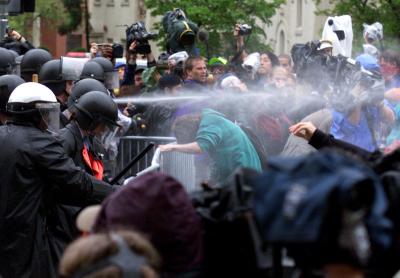

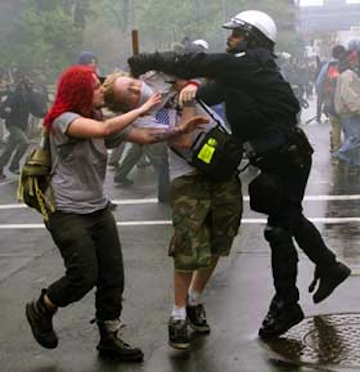
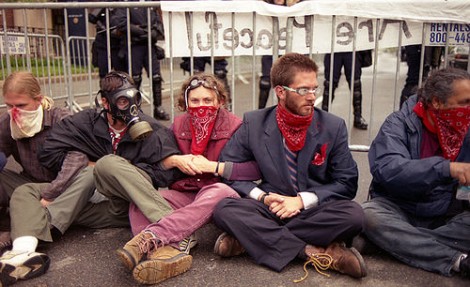
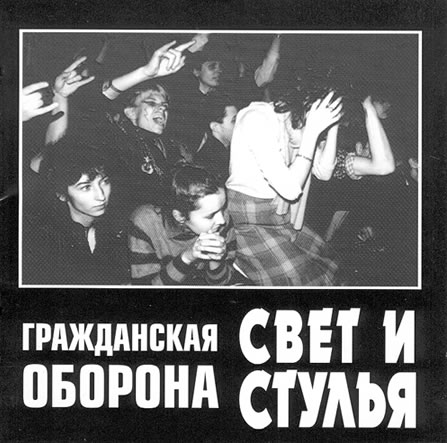
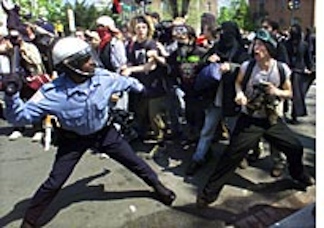
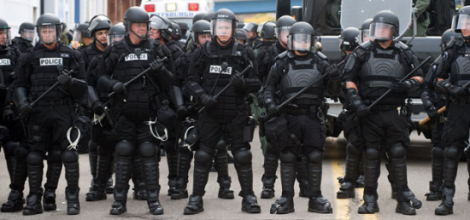
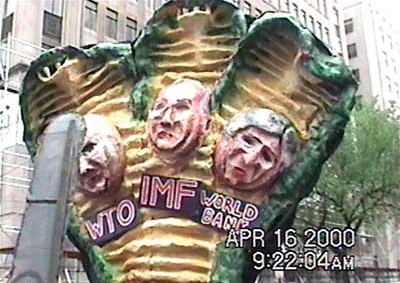
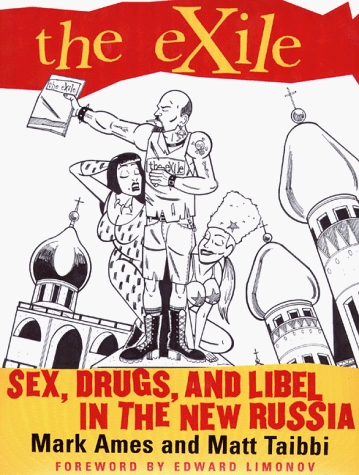










8 Comments
Add your own1. S | September 5th, 2010 at 5:51 pm
As a black blocker at the A20 protests, and at Quebec City later that year, I think that all of us who thought we were doing something that mattered back then can be forgiven our optimism at the time.
Nearly a year and a half later, Al-Qaeda would show us some serious property destruction and the mainstream left responded by essentially pledging not to protest anything until the American public felt better about seeing people exercise their first amendment rights again. At the same time, and to their credit, the anarchists chose to go it alone and planned a “people’s strike” in DC that turned into an unqualified disaster. It was so thoroughly infiltrated by cops from the earliest planning stages that the cops rounded people up like herds of down syndrome sheep on the day of.
No one’s learned a damn thing since then. Every major American protest plays out as predictably as a civil war reenactment organized by renfaire geeks. As any union worker smashing a scab’s windshield will tell you, a protest doesn’t do shit unless it costs your enemy something. And even protests that are successful at getting at their target in some effective way can only do so much.
You’re not going to protest the IMF out of existence or capitalism for that matter. Doing that will take whole swaths of society deciding they want to do things differently, live differently, and each in their small but cumulative way doing something about it.
That said, it was fun as hell fighting the cops.
2. S | September 5th, 2010 at 5:58 pm
Sorry, I drink too much. A20 was the Quebec protest which happened the following year after A17.
3. rick | September 5th, 2010 at 7:09 pm
This stuff was really good. Damn the imbecile “rules.” Newsday, of Long Island, one of the 20 biggest newspapers in America, instituted a paywall to get subscribers months ago–they eventually commanded subscribers in a few dozens. Literally. Admitted by the CEO under questioning.
The content of American newspapers is so mind-bogglingly boring and without distinction, whether emotional, personal, factual or intellectual, almost literally nobody will pay a couple bucks for it. It’s worth reflecting upon. If you don’t think you have a huge number of fans, every other columnist has fucking zero, they merely function in a moribund brand institution people barely even think about why they read (along with the publications’ editors).
This paper at its best prolific phases, I would have paid for (I did donate without a second thought).
4. FrankMcG | September 6th, 2010 at 1:30 pm
How many of those arrested on B.S. charges went on to be prosecuted?
As far as the press goes, it’s gone on to the Coke/Pepsi cold war stage of competing entities. Both sides play it safe and rather then coming up with their own superior product, simply work overtime to exactly copy what the other one does.
And that’s what has happened to the press. In the age of instant digital coverage and countless news channels, no one paper or network wants to risk breaking their own story. Much safer to simply copy/paste the official line that every other reporter is getting and not risk getting left out in the cold.
To put it another way, when was the last time you trusted a consumer magazine/website for product advice? Companies long ago figured out that the best strategy was to court these reporters, feed them “exclusive” sneak peaks of coming attractions. This makes any consumer critic think twice before giving any product a negative review. Upsetting its makers might mean being cut off from the official line, an absolutely terrifying prospect.
So yeah, pretty much the same thing with the press now. Why risk being cut off from cushy police cordons and press feeds?
5. Peter | September 6th, 2010 at 2:11 pm
This is a great article and shows that Ames was once a really great journalist. His tone has become way too bitter and “I told you so” in recent years. I wish he could go back to this or at least remember how he once was: cynical but not completely hopeless.
6. John | September 7th, 2010 at 3:32 pm
Beautiful article, Ames
7. A-Lex | September 20th, 2010 at 1:32 am
Here’s how Russian anarchists / counter-culture artists have their go at the state and cops:
http://plucer.livejournal.com/297581.html
http://plucer.livejournal.com/265584.html
http://plucer.livejournal.com/253505.html
The texts are in Russian (well duh), but there’s plenty of photos for everyone to get the idea.
These guys are real, and no one in Russia sticks it to the authorities more brazenly than they do.
8. Luther Blissette | October 2nd, 2010 at 9:07 am
I served a few rotations in the 1999 – 2001 anti-capitalist protest circuit. Ames has captured it pretty well.
My favorite tactic was a water gun full of black ink for all the reporters and their pristine camera lens.
The shrill botox-harpy shrieks!
The foul sewer curses of camera-nerds!
The sham ‘Patrick Bateman’-esque rage of Ken doll reporters!
How dear those were to me.
And the police didn’t care one whiff. They were happy to get their overtime and protect their own.
I stopped in 2002 because I wasn’t a masochist but je ne regrette rien.
I still miss the free veggie stew & free high-grade hash….
PAX
Leave a Comment
(Open to all. Comments can and will be censored at whim and without warning.)
Subscribe to the comments via RSS Feed